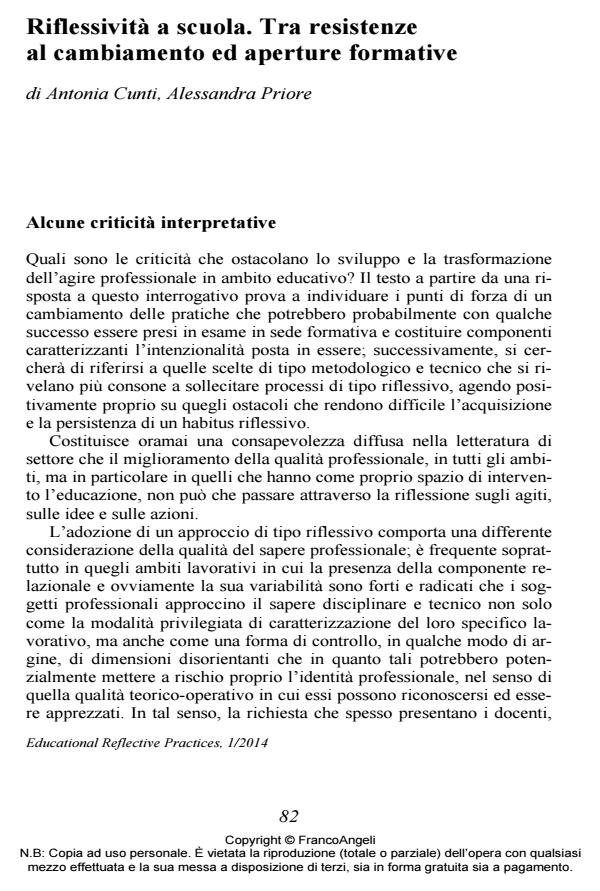Riflessività a scuola. Tra resistenze al cambiamento ed aperture formative
Titolo Rivista EDUCATIONAL REFLECTIVE PRACTICES
Autori/Curatori Antonia Cunti, Alessandra Priore
Anno di pubblicazione 2015 Fascicolo 2014/1
Lingua Italiano Numero pagine 19 P. 82-100 Dimensione file 71 KB
DOI 10.3280/ERP2014-001005
Il DOI è il codice a barre della proprietà intellettuale: per saperne di più
clicca qui
Qui sotto puoi vedere in anteprima la prima pagina di questo articolo.
Se questo articolo ti interessa, lo puoi acquistare (e scaricare in formato pdf) seguendo le facili indicazioni per acquistare il download credit. Acquista Download Credits per scaricare questo Articolo in formato PDF

FrancoAngeli è membro della Publishers International Linking Association, Inc (PILA)associazione indipendente e non profit per facilitare (attraverso i servizi tecnologici implementati da CrossRef.org) l’accesso degli studiosi ai contenuti digitali nelle pubblicazioni professionali e scientifiche
The paper, starting from research and education experiences with teachers, tries to identify the strengths of a change of practices that could be considered in the teacher education to develop a reflexive habitus. The analysis of the ways in which the reflexivity can be taught must consider the spread and typical criticality of teacher professional practices to find education specific to uncovering and redefinition. A reflexive process based on the promotion of resources supports the teacher, when it is in a zone of conflict or tension, to experiment with openness to further possibilities that reside in personal qualities often obfuscated or undervalued, rather than persevere in a limiting factor. To help teachers to conceptualize their teaching images, it is ncessary to invoke autoeducative methodologies, such as narrative and observation, which are able to ease the verbalization of the practice and the key step to building an active relationship with it.
- Employability & Competences Antonia Cunti, pp.103 (ISBN:978-88-6453-671-2)
Antonia Cunti, Alessandra Priore, Riflessività a scuola. Tra resistenze al cambiamento ed aperture formative in "EDUCATIONAL REFLECTIVE PRACTICES" 1/2014, pp 82-100, DOI: 10.3280/ERP2014-001005